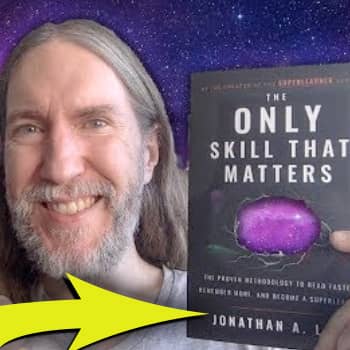 Speed reading books are a dime a dozen. But are any of them any good?
Speed reading books are a dime a dozen. But are any of them any good?
Sadly, in most cases the answer is a resounding “no.”
The majority get lost in readily debunked nonsense about subvocalization and eye fixations. Finding any gems within them that you can actually use is pretty rare.
Worse, a lot of the people recommending lists of the best books on speed reading don’t really demonstrate substantial proof that they’ve actually read a lot.
But today we’ll fix that. I’ll share three speed reading books that do contain information you can put into use immediately.
Now, you might be wondering… what’s my proof that I read a lot?
Well, I’ve not only written multiple bestselling books based on intensive research. I also have a PhD, two MAs and a BA in English Lit. So when it comes to reading fast and remembering more, I’ve been around the block and have the street credentials to show for it. If nothing else, these accomplishments should at least make the serious learner curious about my findings.
The best part about the books discussed on this page?
If you want to legitimately speed read books, the useful aspects of the guides I’m about to share all include scientifically verified techniques I’ve personally tested.
So with all that in mind, let’s get started!
The 3 Best Speed Reading Books On The Market
1. Brilliant Speed Reading
Although the book is flawed with some claims that don’t stand up to scientific scrutiny, Brilliant Speed Reading is still my top book on the topic.
Here’s why:
Phil Chambers nails the ultimate truth that most people who want better reading speeds need to discover.
If you want to improve your reading speed, you must increase your vocabulary.
Why?
Because not understanding words will always slow you down. The more words you understand at a glance, the faster you can read without interruption.
But there’s another feature that makes Chambers’ book so good.
It outperforms every other speed reading book I’ve seen because of its suggested vocabulary lists.
They’re not just lists either. Each collection helps you think about language itself while improving your vocabulary.
You could get a similar effect from reading Norman Lewis’ famous Word Power Made Easy, but that book doesn’t include information on using mnemonics.

Other great aspects of Chambers’ book include:
- Scientifically valid suggestions for developing review patterns
- Information about speed reading competitions
- Examples of different kinds of reading, like court judgments and scientific papers
- Basic training on mind mapping and its benefits for learning and memory
Although I have criticisms of some of this book, it’s great overall and Phil Chambers really knows his stuff. I also strongly recommend his book, 101 Top Tips for Better Mind Maps.
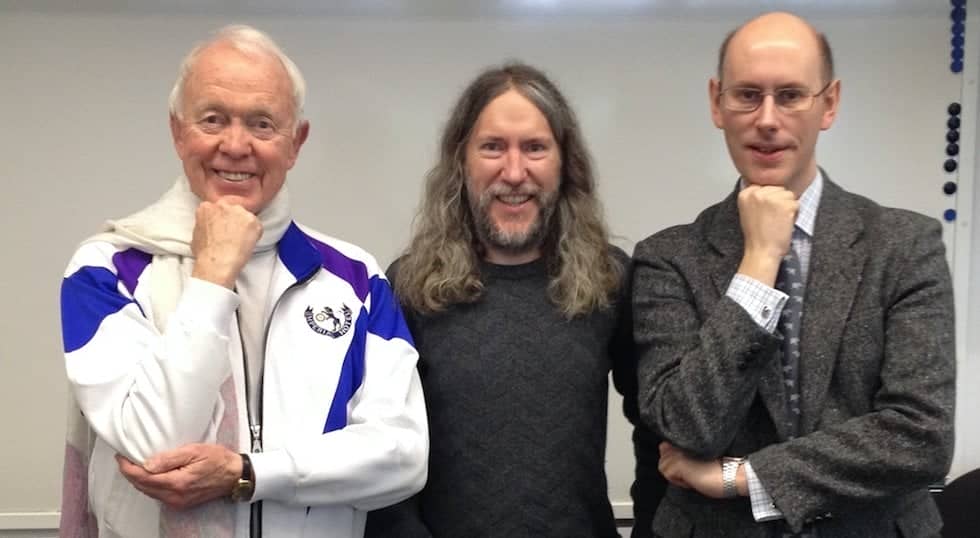
Listen to Phil Chambers in discussion with me here for more information: How to Combine Mind Mapping with Memory Palaces.
I also recommend Chambers’ book How to Train Your Memory. It is excellent.
2. The Only Skill That Matters
Jonathan Levi possesses a super power with reading that I’ve seen play out before my very eyes. His ability to read quickly and synthesize a lot of information that leads to powerful decisions is stunning.

The best part is that how Jonathan teaches his super power combines reading with memory techniques. This aspect of his teaching is key.
And according to Jonathan, accelerated reading skills without mnemonics is no skill at all. In fact, what does it matter if you’re reading a million miles an hour if you can’t remember any of it?
The strength of The Only Skill That Matters goes beyond this critical point, however. You’ll also learn:
- The power of “reauthoring” books by reading them out of order
- How to use reading for problem solving
- How to grow your knowledge base rapidly so you can be a better leader
Even if you’re not a “leader” in the business or institutional sense of the term, you will always need to lead yourself better.
And that’s where Jonathan has helped me very much by giving me a rapid analysis of health information I desperately needed to lead my own life better.
The story is quite personal, but I share all the details here:
Here’s the important point to understand about developing the skills as Jonathan teaches them:
Jonathan’s demonstration of reading quickly was within a field he already had familiarity with over several years of study.
Just as you need to develop your vocabulary to read quickly, expanding your competence within specific fields of knowledge also improves speed. This outcome happens thanks to heightening your “pattern recognition.”
Instead of getting hung up on new concepts and slowing down, you see connections faster. This effect allows for developing conclusions faster and enabling you to read more based on preexisting connections in your mind.
3. Learning How to Learn
Although better known for the Coursera video program of the same title, Learning How to Learn is also available as a book. Frankly, I think the book is much better than the course.
Why?
First, the main traditional speed reading technique in this book has been changed from “priming.” In this case, the authors call the process “taking a picture walk.” More on that skill in a moment.
Second, I love how often the authors manage to slip in cool memory advice.
Take the name Sejnowski, for example.
By the time you hear about Terrence Sejnowski’s incredible journey to becoming a memory expert and brain scientist who directs the Computational Neurobiology Laboratory, you’ve also learned how to memorize his name.
That’s because the book gives you an extra little tip on how to break the name down so that you can memorize it with greater ease. There are oodles of mnemonic examples like this throughout the book that make it easy and fun to read.
I also really like how Barbara Oakley and Terrrence Sejnowkski used footnotes to enhance the reading experience.
This feature helps preserve a tradition in book publishing that is sadly becoming less common. I suppose some people might feel like they break the flow of your reading, but there’s actually a lot of genius to this form of information display.
For example, we know that if you want to memorize fast, it’s important to take frequent breaks when we’re reading. I’ve often thought that it’s precisely because I regularly pause to read the footnotes that I got through a lot of my university reading so fast.
It’s not exactly right to say that they speed up your progress in terms of linear time, but they provide a combination of mental relief from focusing so hard while at the same time supplementing your knowledge too.

Likewise, Learning How to Learn is packed with illustrations. They supplement what you’re reading and access a different part of your attention so that you experience multiple levels of processing.
And all the illustrations come in handy too because you’ll learn to take a picture walk.
Finally, it’s fun how Learning How to Learn teaches you memory techniques through the eyes of a great memory athlete and memory author like Nelson Dellis.
Even though he and I have spent a fair amount of time chatting both on and off the Magnetic Memory Method Podcast, I still learned a ton by reading about how he operates his mind.
Overall, you’ll learn about everything from performing better on tests to how you can rig your brain to earn you more free time to the secrets of turning your home into a mental notepad.

You’ll learn how to escape “zombie mode” when you need more brain power and discover why you can relax when your mind wanders.
Mind wandering is actually a great part of the learning process. Yet, sadly, so many people punish themselves unnecessarily when it happens. That’s just one more reason why Learning How to Learn is highly recommended.
For more about Barbara Oakley’s work, listen to our interview.
Why Is There No Tony Buzan Speed Reading Book In This List?
Don’t get me wrong. I’m a huge fan of Tony Buzan. I’ve even seen him speed read my own writing!
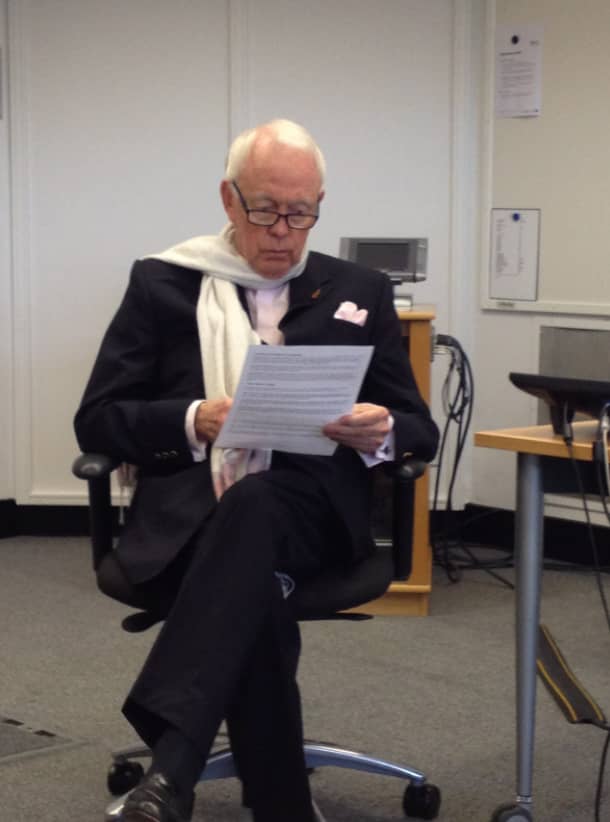
But as interesting as Buzan’s The Speed Reading Book is, I ultimately feel that Chambers’ entry is better for the reasons listed above:
Again, Chambers’ book enables you to build your vocabulary, which for most readers is the best shot they’ve got at genuine improvement.
Remember: Vocabulary development is not so much about speeding up as it is removing the obstacles that slow many readers down. (You can remove the other major barrier now by applying these reading comprehension strategies.)
Reading For Speed Vs. Reading For Memory
As you can see, I’ve privileged books on speed reading that are scientific and focus on combining skills that matter.
In other words, reading faster can never be about speed on its own. If you learn how to stop subvocalizing, you might gain a marginal speed gain, but what would it matter? This impossible technique requires so much focus just to fail at it, that it will be nearly impossible to remember more.
On that note, a “runner up” book I’d recommend is Ultralearning, by Scott Young. It gives you a holistic understanding of how to master new skills quickly. It’s great because it helps you properly place where reading belongs in your skill stack.
It also helps you develop familiarity with an entire field much faster. Beside developing your vocabulary, that is the second best way to read faster.
This approach works due to the “short cuts” pattern recognition allows many readers. When you know where someone is going with an argument, you can more legitimately skim or scan the text without losing too much detail.
That said, keep in mind that experts get that way because they focus on the granular details. That’s why skimming vs scanning should be applied only very strategically.
So if you’re looking for the absolute best speed reading books on the market, my final suggestion is to broaden your horizons. Instead of plumbing through scientifically invalid books that use flashy marketing to grab your interest, find authors who have achieved what you want in terms of knowledge.
You might be surprised by how these people speed read books, and massively boost your performance as a result.
Related Posts
- Why Speed Reading Is The Ultimate Enemy Of A Well-Read Mind
Is "speed-reading" really such an attractive idea? The short answer is ...
- Teach Yourself Using The Best Language Learning Books By Olly Richards
Olly Richards shares the background to his Teach Yourself language learning short story series of…
- Natural Memory Enhancers That Actually Work
Looking for natural memory enhancers to boost your focus and concentration? This in-depth post teaches…


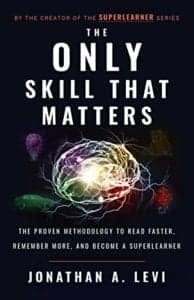
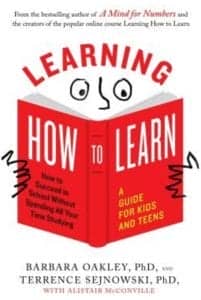




4 Responses
Do you have a pointer to the chapter or section where The Only Skill that Matters talks about what you called “reauthoring?” I’ve read the book but don’t recall reading anything by that name but was curious about it.
Thanks for this, Brant.
I don’t have a direct reference because I made this term up to interpret my understanding of what Jonathan is talking about. It’s something like “advanced priming.”
If you watch the full live stream replay where I talk about the book, you’ll glean more of what I mean.
Anything else I can do to help you out?
Thanks. He does talk about pre-reading in some priming for learning sections along with techniques like SQ3R (survey, question, read, recall, review). Maybe it’s in that area you came upon the idea you are talking about. I’ll have to watch your video and see if that gives some more context.
Following those steps is indeed what I think of as “reauthoring” a book, provided a written summary and discussion are also in the mix. After all… why read books you aren’t going to discuss?